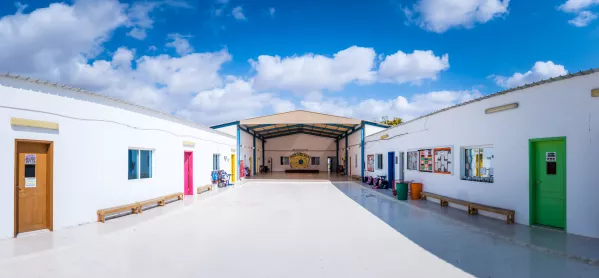
- Home
- Why we were embracing blended learning pre-pandemic
Why we were embracing blended learning pre-pandemic

Last year, our school developed an idea that, at the time, seemed novel, innovative and creative: delivering a whole curriculum through a mix of online and face-to-face teaching.
Of course, within a few months, the whole world was doing likewise.
But what we created was not about overcoming a pandemic, but something more fundamental: about international schools and their staff using their skills to help broaden access to education across their host country.
With most schools and teachers now well versed in the type of model we created, it’s a route that could become a lot more popular across the globe.
The background
There are two not-for-profit British International Schools in the Sultanate of Oman.
British School Muscat (BSM) is in the capital with 1,100 students aged 3-18; the other is British School Salalah (BSS), over 1,000 kilometres away, on the wild southern coast in the Dhofar region.
Salalah is a different world; a beautiful part of the Arabian Peninsula and largely undeveloped as yet.
It has an important trading port, with a rapidly developing modern city. There are around 160 students here for primary schooling - meaning, pre Covid-19, it could support traditional educational methods.
The senior school, though, has seven, four and six students in Years 7, 8, and 9 respectively, as there is just not the infrastructure to support proper key stage 3 and 4 education.
This is where we came in.
A polite request
The government ministry wanted to expand and improve educational standards in Salalah, particularly at secondary level, and we at BSM were asked, politely but firmly, to try to help.
On one hand, we saw this as an exciting opportunity for BSM to create a partnership with BSS to fulfil the ministry’s objective by creating some new initiatives.
On the other, there was at least one major hurdle. I flew down last November in the knowledge that schooling so few students beyond KS3 would not be viable.
“What can you do for our children, sir?” was how I was greeted by parents. “They, and we, love this place, and we want to stay. Please help us!”
In my 30 years in education, I have rarely had to tell a parent that their child no longer had a place at my school, and never due to the fact that my team couldn’t negotiate obstacles.
Creating a plan
Luckily, Les Jonson, director of IT, a formidable and creative problem solver, had come with me on this visit to BSS. We quickly huddled down and devised a plan to table with the parents the next day that came to be called FlexEd.
We introduced our concept and the response from parents was positive immediately. After discussion and buy-in, FlexEd was launched. It is targeted for students aged 13-16 preparing for IGCSE, and it works like this:
- Five days a week in school in Salalah. Face-to-face teaching for English and maths IGCSE, Arabic, music and PE is delivered predominantly by two dedicated teachers.
- IGCSE biology, chemistry, physics and computing supported by a personalised learning platform from Century with regular timetabled tutoring from BSM’s world-class team of UK-qualified science teachers.
- All students are able to participate in BSM’s enrichment programme including the World Scholar’s Cup, Model United Nations and the Duke of Edinburgh’s International Award.
- A Google Chromebook laptop, software and unlimited storage for school and home use is included free of charge for every FlexEd student.
This solution blends direct teaching, online learning and video conferencing with specialist teachers, and can be offered at an affordable price point for the families.
It has also widened the skill set for our teachers in both Muscat and Salalah, and we have added support personnel for students in Salalah to smooth the way.
The face-to-face part is still a critical component, of course, just as it has been in trying to return to some form of normality in the new pandemic-affected world.
A model for success
Overall, the project was a huge success, with the government ministry just officially approving the initiative, which is a notable achievement in such a short space of time.
And as my colleague Jenny Maslen, the new head of BSS, notes, the opportunity to pioneer something like this has been an exciting journey for all involved.
“Take-up has been encouraging and early feedback has enabled us to coordinate teaching slots and fine-tune student needs. The next step is to do a full evaluation with students, parents and teachers in December and look to how we continue to grow this truly blended learning educational set-up, and show how it can become a sustainable long-term model.”
And sustainability is key here. We firmly believe that this is a model that can be used elsewhere, for us in Oman and in other countries too, with the enviable benefit of extending the reach of quality British education to an ever-growing number of young people.
It’s a win-win.
Kai Vacher is principal of the British School Muscat in Oman
Register with Tes and you can read five free articles every month, plus you'll have access to our range of award-winning newsletters.
Keep reading for just £4.90 per month
You've reached your limit of free articles this month. Subscribe for £4.90 per month for three months and get:
- Unlimited access to all Tes magazine content
- Exclusive subscriber-only stories
- Award-winning email newsletters
You've reached your limit of free articles this month. Subscribe for £4.90 per month for three months and get:
- Unlimited access to all Tes magazine content
- Exclusive subscriber-only stories
- Award-winning email newsletters



